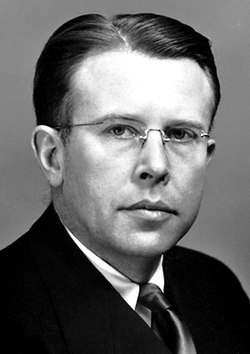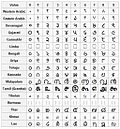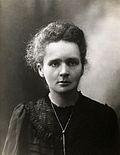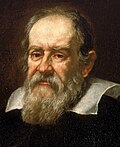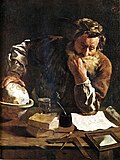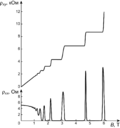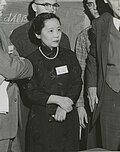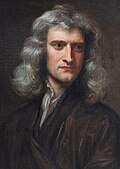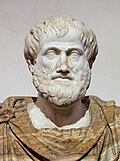Top Qs
Timeline
Chat
Perspective
Portal:Physics
Wikipedia portal for content related to Physics From Wikipedia, the free encyclopedia
Remove ads
The Physics Portal
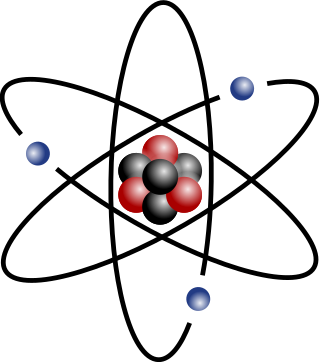

Physics is the scientific study of matter, its fundamental constituents, its motion and behavior through space and time, and the related entities of energy and force. It is one of the most fundamental scientific disciplines. A scientist who specializes in the field of physics is called a physicist.
Physics is one of the oldest academic disciplines. Over much of the past two millennia, physics, chemistry, biology, and certain branches of mathematics were a part of natural philosophy, but during the Scientific Revolution in the 17th century, these natural sciences branched into separate research endeavors. Physics intersects with many interdisciplinary areas of research, such as biophysics and quantum chemistry, and the boundaries of physics are not rigidly defined. New ideas in physics often explain the fundamental mechanisms studied by other sciences and suggest new avenues of research in these and other academic disciplines such as mathematics and philosophy.
Advances in physics often enable new technologies. For example, advances in the understanding of electromagnetism, solid-state physics, and nuclear physics led directly to the development of technologies that have transformed modern society, such as television, computers, domestic appliances, and nuclear weapons; advances in thermodynamics led to the development of industrialization; and advances in mechanics inspired the development of calculus. (Full article...)
This is a Featured article, which represents some of the best content on English Wikipedia.

A tropical cyclone is a rapidly rotating storm system with a low-pressure area, a closed low-level atmospheric circulation, strong winds, and a spiral arrangement of thunderstorms that produce heavy rain and squalls. Depending on its location and strength, a tropical cyclone is called a hurricane (/ˈhʌrɪkən, -keɪn/), typhoon (/taɪˈfuːn/), tropical storm, cyclonic storm, tropical depression, or simply cyclone. A hurricane is a strong tropical cyclone that occurs in the Atlantic Ocean or northeastern Pacific Ocean. A typhoon is the same thing which occurs in the northwestern Pacific Ocean. In the Indian Ocean and South Pacific, comparable storms are referred to as "tropical cyclones". In modern times, on average around 80 to 90 named tropical cyclones form each year around the world, over half of which develop hurricane-force winds of 65 kn (120 km/h; 75 mph) or more.
Tropical cyclones typically form over large bodies of relatively warm water. They derive their energy through the evaporation of water from the ocean surface, which ultimately condenses into clouds and rain when moist air rises and cools to saturation. This energy source differs from that of mid-latitude cyclonic storms, such as nor'easters and European windstorms, which are powered primarily by horizontal temperature contrasts. Tropical cyclones are typically between 100 and 2,000 km (62 and 1,243 mi) in diameter. The strong rotating winds of a tropical cyclone are a result of the conservation of angular momentum imparted by the Earth's rotation as air flows inwards toward the axis of rotation. As a result, cyclones rarely form within 5° of the equator. South Atlantic tropical cyclones are very rare due to consistently strong wind shear and a weak Intertropical Convergence Zone. In contrast, the African easterly jet and areas of atmospheric instability give rise to cyclones in the Atlantic Ocean and Caribbean Sea. (Full article...)
Did you know -

- ... that, in the Large Hadron Collider, protons move at 99.9999991% the speed of light when accelerated with the energy of 7 TeV?
- ... that, at a speed of 299,792,458 m/s, light can travel from the Earth to the Moon in 1.2 seconds?
Selected image -
Photograph credit: Jean-Marc Kuffer
Total internal reflection is the optical phenomenon in which light waves are completely reflected under certain conditions when they arrive at the boundary between one medium and another. This photograph was taken from near the bottom of the shallow end of a swimming pool. The swimmer has disturbed the water surface above her, scrambling the lower half of her reflection, and distorting the reflection of the ladder. Most of the surface is still calm, giving a clear reflection of the tiled bottom of the pool. The air above the water is not visible except at the top of the frame where the angle of incidence of light waves is less than the critical angle and therefore total internal reflection has not occurred.
Related portals
December anniversaries
- 1610 – Galileo Galilei observes phases of Venus.
- 1900 - The peer reviewed journal "Nature" reports on Duddell's "Singing Arc" American Physical Society.
- 1942 - First self-sustained nuclear chain reaction at the University of Chicago under the supervision of Enrico Fermi. American Physical Society
- 1968 – Apollo 8 Launched
- 1995 – Hubble Deep Field images taken.
Births
- 1852 - Henri Becquerel
- 1900 - George Eugene Uhlenbeck
- 25 December, 1642 - Isaac Newton
- 5 December, 1901 - Werner Heisenberg
- 18 December, 1856 - J. J. Thomson
General images
The following are images from various physics-related articles on Wikipedia.
Categories

Fundamentals: Concepts in physics | Constants | Physical quantities | Units of measure | Mass | Length | Time | Space | Energy | Matter | Force | Gravity | Electricity | Magnetism | Waves
Basic physics: Mechanics | Electromagnetism | Statistical mechanics | Thermodynamics | Quantum mechanics | Theory of relativity | Optics | Acoustics
Specific fields: Acoustics | Astrophysics | Atomic physics | Molecular physics | Optical physics | Computational physics | Condensed matter physics | Nuclear physics | Particle physics | Plasma physics
Tools: Detectors | Interferometry | Measurement | Radiometry | Spectroscopy | Transducers
Background: Physicists | History of physics | Philosophy of physics | Physics education | Physics journals | Physics organizations
Other: Fiction about physics | Physics lists | Physics software | Physics stubs
Physics topics
Classical physics traditionally includes the fields of mechanics, optics, electricity, magnetism, acoustics and thermodynamics. The term Modern physics is normally used for fields which rely heavily on quantum theory, including quantum mechanics, atomic physics, nuclear physics, particle physics and condensed matter physics. General and special relativity are usually considered to be part of modern physics as well.
More recognized content
Associated Wikimedia
The following Wikimedia Foundation sister projects provide more on this subject:
-
Commons
Free media repository -
Wikibooks
Free textbooks and manuals -
Wikidata
Free knowledge base -
Wikinews
Free-content news -
Wikiquote
Collection of quotations -
Wikisource
Free-content library -
Wikiversity
Free learning tools -
Wikivoyage
Free travel guide -
Wiktionary
Dictionary and thesaurus
Sources
Portals on Wikipedia
Remove ads
Wikiwand - on
Seamless Wikipedia browsing. On steroids.
Remove ads













